The Hottest Hit On The Planet:
Oh dear…

…It’s “Billy Don’t Be A Hero” by Paper Lace
Popular consensus has it that 1974 was the worst year in pop music history. The year that – to quote Lane Kim on Gilmore Girls – made the year of the “Macarena” sound inspired.
It’s not unanimous. There are arguments for 2014. I’ve seen arguments for 1997 aka The Year After The Year Of The “Macarena.”
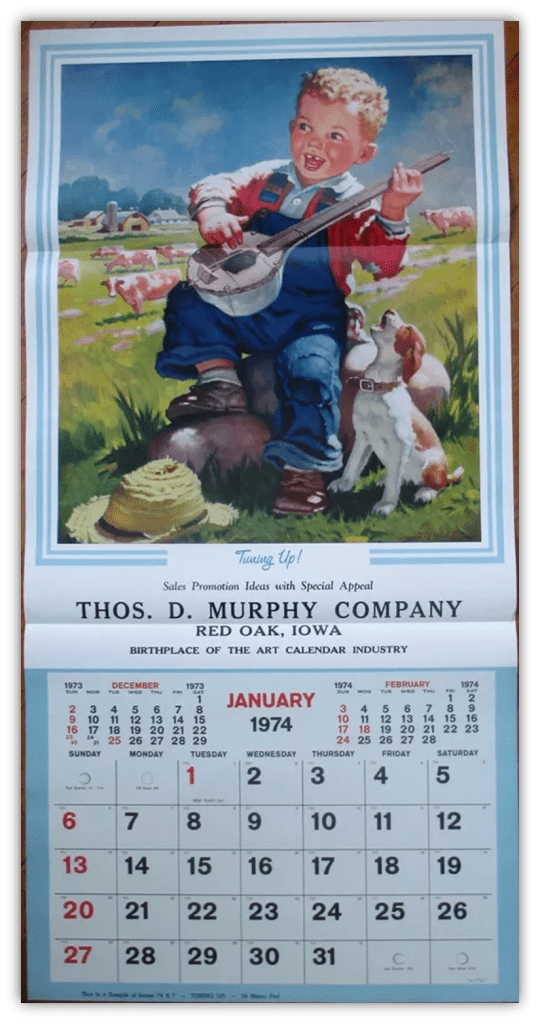
But 1974 is the Big One.
1974 is The Definitive Bad Year In Pop Music.
And so, halfway through 1974, I feel it’s time to celebrate… no, that’s not quite the right word, what’s the opposite of celebrate?… CONDEMN!!! It’s time to CONDEMN the Hottest Hits Of 1974. To damn them! To DAMN THEM ALL TO HELL!!!
Hits such as “Billy Don’t Be A Hero.”
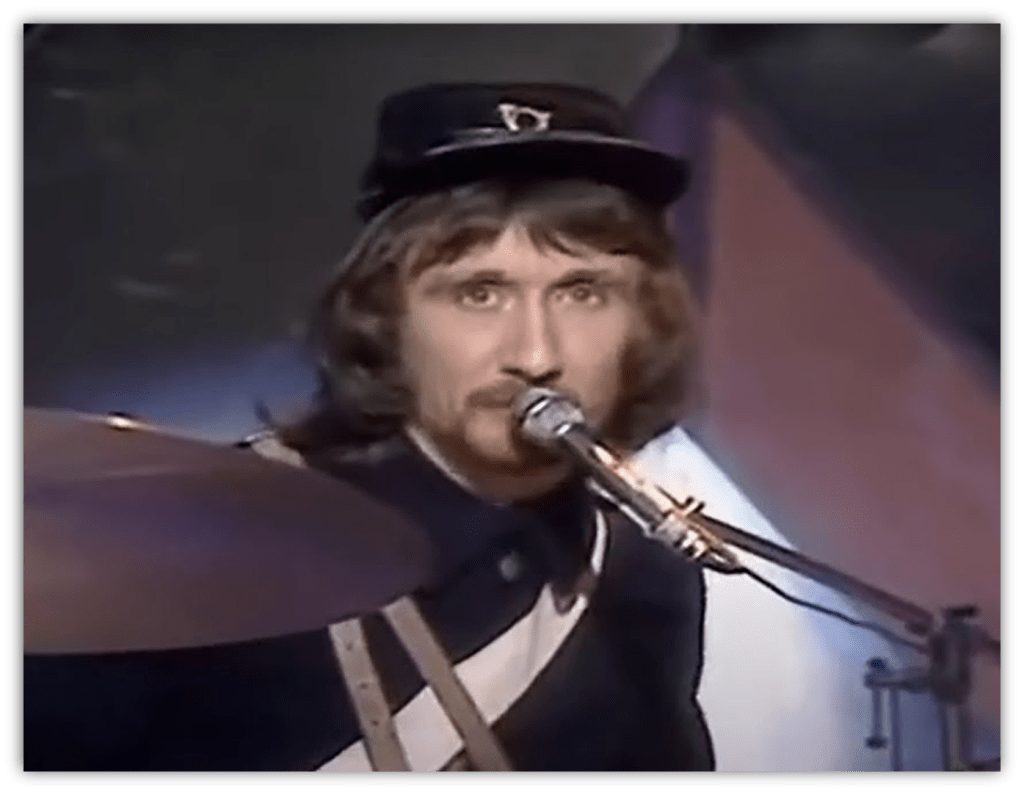
To promote “Billy Don’t Be A Hero”, British band, Paper Lace, dressed up as Civil War soldiers. At least they had the good sense to be Union soldiers. I had to check.
Given the insensitivity of everything else about “Billy Don’t Be A Hero”, Paper Lace not dressing up like Confederate soldiers didn’t feel like sort of thing that I could take for granted.
On the other hand, maybe it would be better if they had been Confederate soldiers. For, since Billy was a Union soldier, this would suggest that Billy’s fiancée doesn’t believe that the abolition of slavery is something worth being a hero for. This puts a completely new spin on the situation: the conventional reading of “Billy, Don’t Be A Hero” is that Billy’s fiancée is some sort of proto-peacenik. What, however, if she was pro-slavery?
What if Billy’s fiancée is really the villain of the piece?
Surely the war footage wasn’t the actual video? Anyone know what movie this is?
There is so much that is deeply terrible about “Billy, Don’t Be A Hero” – the marching band drum patters, the whistling, the kazoo! – that it’s hard to pick an ultimate worst bit. If I were forced however, to pick a worst bit, I’d have to say it’s the bits where they try to sound like Billy’s fiancée and sing in a whiny girlie voice “keep your pretty head looow.” Terrible. Simply terrible.
“Billy Don’t Be A Hero” wasn’t just a one-off. In a year that marching drums and perky whistling and a kazoo could give you a global hit, a whole lot of other bad ideas were also thrown into the mix. In a year in which a song set in the Civil War could soar up the charts, did anyone even look-twice when ragtime made a reappearance?
“The Entertainer” basically sounds like an instrumental version of “Billy Don’t Be A Hero”, and yes, I know that it was composed by ragtime genius Scott Joplin. As you know – or at least, as I’ve mentioned at least a handful of times – I’m writing a book series on the history of pop music. Scott Joplin’s 1890s-1900s work is dealt with in the seventh chapter.
So believe me when I tell you that, although Scott never made a record, if he had have, it wouldn’t have sounded like a Civil War-era marching band.

It would have just been Scott, sitting down at his piano, and doing a whole lot of complicated sounding runs and stuff. Also, back in the 1890s-1900s, nobody cared about “The Entertainer.”
“Maple Leaf Rag” was the real banger. “Maple Leaf Rag” was Scott Joplin’s “Billie Jean.”
And it wasn’t a one-off for Paper Lace either: since they also had a huge hit rewriting the history of the Valentine’s Day Massacre, turning into a great big kazoo-drenched knees-up, in which the only historical fact they get correct was that Al Capone was involved. Everything else – the history of the massacre, the geography of the massacre – is massacred.
They don’t appear to have dressed up as gangsters. A missed opportunity.
As everybody notes, there is no such neighbourhood as East Chicago. Although to be fair, they could have been shooting it out underneath the Cloud Gate. Also to be fair, it was more difficult back then to get facts about geography.

Few atlases were so detailed that the reader was able to pinpoint specific neighbourhoods, not even for major metropolises like Chicago. They’d probably have to go all the way down to their local library to find a relevant map. Who has time for that?
The same, I guess, with historical facts. Mitch and Peter – the two hit songwriters who wrote the thing, and they wrote a lot of hits, most of which no-one remembers – had watched a gangster film about the Valentine’s Day Massacre – probably 1967’s Valentine’s Day Massacre – years earlier. If they didn’t possess a Funk & Wagnalls or Brittanica Encyclopedia, they’d, once again, have to trapse on down to the local library… and who has time for that?

As a result “The Night Chicago Died” is even more historically inaccurate than Boney M’s “Rasputin.” But that’s another rant for another time. In several years’ time, as a matter of fact.
And now, I’ve heard the legends, the tales of horror, but I’ve never actually heard Paul Anka’s “You’re Having My Baby” before.
- I’ve put it off.
- I’ve been too afraid.
But the time has come… is it truly The Worst Song Of 1974, and therefore THE WORST SONG OF ALL TIME?
So… I feel considerably less cool now than I did mere seconds before pressing play – “You’re Having My Baby” really does ooze whatever-the-opposite-of-coolness-is – but it’s not quite as bad as I was fearing. The most off-putting aspect, at least for me, is that Paul is really, really, trying to sound sexy, whilst singing about a baby. Or more specifically, a foetus. He’s definitely putting on a bit of Elvis, and also, I think, a bit of Barry White.

But instead he lands on Chef from South Park.
Curious as to what the reaction video tribe would make of it, Lex, the girl from Brad & Lex, said “what a great sentiment, aawwwwww, it’s like aww, hmmm, it’s like the best compliment… (something about a girl trying to get pregnant)… she’s basically saying ‘I wanna copy you!” then they started talking about girls trying to trap you for your money… yeah, that was a weird take.
Then there’s “Rub It In” by Billy “Crash” Craddock:

An artist who had multiple Number Ones in Australia in the early 60s, purely because somebody sent over a reel of him lip-syncing to a record called “Boom Boom Baby”, and, since we didn’t have anything else to play, TV stations had no choice but to put it on repeat.
Early Australian television was rough.
Anyway, “Rub It In”… probably not about getting a handjob on the beach, despite what some people will tell you – probably just about having suntan lotion rubbed all over you by a babe. Sunscreen was just getting popular in the early 70s, but it wasn’t very effective yet. You had to reapply all the time, particularly after having a swim. Water-resistant sunscreen wouldn’t be introduced until 1977.
But the original version – three years earlier – had been produced by Ray Stevens, so, who knows.
Because of course 1974 was the year Ray Stevens had a hit with “The Streak”, a comic skit about a guy who likes to streak, with occasional musical accompaniment. And lyrical genius such as “”Boogity Boogity!!!”
So yeah. A lot of bad ideas – and bad songs – in the mix. And they all kind of sound the same. Most were vaguely country flavoured, or at least sounded like the way you might assume country-music would sound if the closest thing to country-music you know is the theme song to The Beverley Hillbillies. You could probably polka to this stuff. And the production is all the same. To misquote one of the worst songs from another of the worst years of pop, this entire post-polka genre is all about that treble, no bass.
- “Billy, Don’t Be A Hero” is a 2.
- “The Night Chicago Died” is a 3.
- “The Entertainer” is a 3″
- “You’re Having My Baby” is a 2.
- “Rub It In” is a 3
- “The Streak” is a 1
People must have been terrified to turn on their radios! They must’ve instinctively reached for the knob, only to have second thoughts, deciding instead that it was better to just sit in silence.
For the good stuff, we’re going to have to dig a little deeper:
Meanwhile, in Elton Land:

“Don’t Let The Sun Go Down On Me”
Okay, not a lot deeper. An Elton John classic hardly requires advanced crate-digging skills.
Nonetheless… Ladies & Gentlemen… Sir Mr Elton John!!!!
Elton John was a master of delayed gratification. Not necessarily in his everyday life and habits, in which he appeared to be rather impetuous, what with his constant collecting of sunglasses – by 1976 Elton was already said to own between 200 and 300 pairs – and snorting cocaine.

All the snorting of cocaine might explain some of his more impetuous sunglass purchases, but it certainly would not explain them all, since Elton didn’t snort cocaine until 1974. I am of course, not counting the first time he went to L.A. and he met Brian Wilson, who reputedly sprinkled cocaine through his food.
To quote Sir Mr Elton: “My appetite for the stuff was unbelievable — enough to attract comment in the circles I was moving in. Given that I was a rock star spending a lot of time in Seventies LA, this was a not inconsiderable feat.”

Then there’s the legend that Elton once flew over the Alps, and looked down at the snowy mountains, and calculated that that’s how much cocaine he had taken in his life. The man clearly took the slang term for cocaine – snow – quite literally.
Don’t tell your mother, or Adult Contemporary radio programmer, but Elton was totally living a cliched rock’n’roll lifestyle. Your mother may not know, since such rock’n’rollin’ shenanigans were not exactly reflected in the mellow meandering melodies of much of his music.
But, in his own shy, bumbling, and unassuming way, Elton was pushing popular music forward.

Testing radio stations as to how long, how meandering, a pop song could be – testing how much he could bore us, before getting to the chorus – and still get played multiple times a day.
A few years earlier Elton had been all over the radio with “Tiny Dancer”, a song that seems to relish in just flirting with the chorus, keeping it at arm’s length, long before it finally decides to commit. Have you ever seen Dave Grohl do an acoustic version of “Tiny Dancer” and about halfway through going “y’know let’s skip all the other crap and just get to the chorus, like on that bus scene”? (“Tiny Dancer’ is a 9) Turns out Dave Grohl is a big fan of Almost Famous.
For Elton understood, that if you put more than just a single verse, if you don’t skip all the other crap, before getting to the chorus – if you put two verses, plus a pre-chorus – the audience will be salivating like crazy! They’ll be dying to sing along!

Or they’ll keep coming in early and stuff the whole thing up. I’ve never been to an Elton concert, but I’m sure it must happen all the time!
“Don’t Let The Sun Go Down On Me” doesn’t have a pre-chorus, but it does wade through two verses before it gets to the chorus. That’s still pretty big.

According to Bernie: “My only recollections of this is that we wanted to write something big. Like ‘You’ve Lost That Lovin’ Feelin’. Hopefully being powerful without being pompous.”
Making something so big-sounding is a tricky business, and it took Elton a long time, and a whole lot of effort, to make the whole thing work. Elton got Dusty Springfield, and Cat Stevens, and half of The Beach Boys in to sing backing vocals, but to no avail. Elton got so frustrated that at some point, after listening to a playback, he remarked: “That’s a load of crap. You can send it to Engelbert Humperdinck, and if he doesn’t like it, you can give it to Lulu as a demo.'” Poor Lulu.
Fortunately for everyone, Elton finally figured it out and “Don’t Let The Sun Go Down On Me” came out, and the world was given another Elton John classic.
“Don’t Let The Sun Go Down On Me” is an 8.
Meanwhile, in Philly-Soul Land:
It’s “Be Thankful For What You Got” by William DeVaughn (NOT CURTIS MAYFIELD!!!!!)
“Be Thankful For What You Got” provided irrefutable proof of what I like to call The Superfly Rule: that it is impossible to write a song discouraging the youth of the day from being drug-pushing gangsta pimps, without making the act of being a drug-pushing gangsta pimp sound, well, pimpin.’
Who wouldn’t want a “a great big Cadillac” with “gangsta whitewalls, TV antennas in the back”?
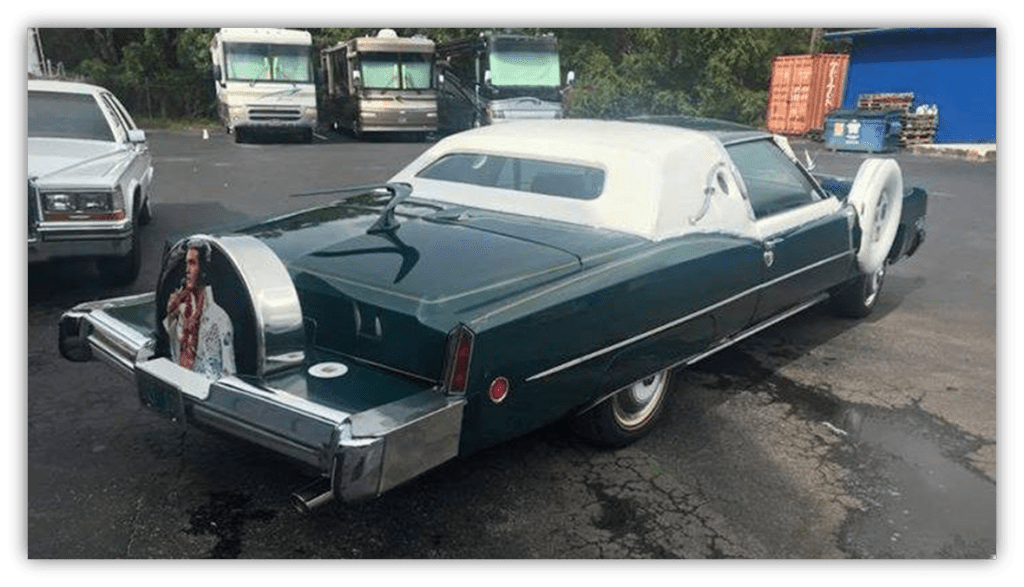
I mean, personally, I’d prefer my “TV antennas” to be “on the back,” not “in the back”, since such an arrangement would mean that my backseat passengers would be constantly getting poked in the face…
…maybe I’m not being thankful enough.

And who wouldn’t want a “diamond in the back, sunroof top” whilst “diggin the scene, with a gangsta lean, wooh-ooh-ooh”?
I don’t know for sure if “Be Thankful For What You Got” features the first recorded usage of the phrase “gangsta lean” – driving a car with one hand on the steering wheel whilst the other reaches towards the passenger seat – but William was almost certainly an early adopter.
Although he made a few other records, “Be Thankful For What You Got” was pretty much William’s only hit. Consequently, not a lot is known about him.
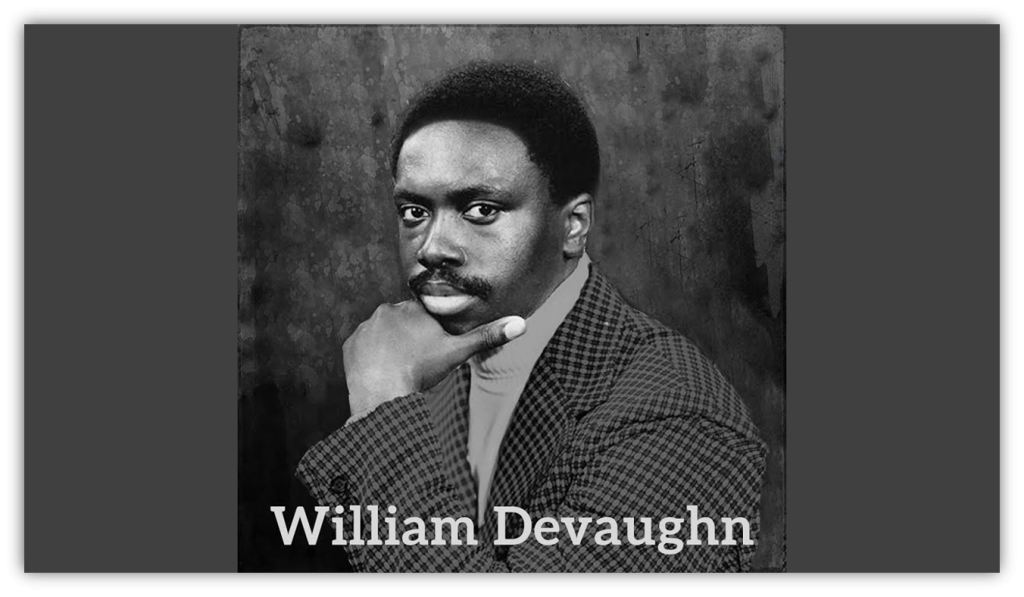
Although he does appear to have been a natty dresser, as a Philly soul singer ought.
Prior to his one hit record he was a “drafting technician.” According to some sources, he designed sewers. Not the most glamorous job perhaps. But, presumedly, he was thankful.
So little is known about William, that a terrifying number of people think that “Be Thankful For What You’ve Got” is by Curtis Mayfield.
And that it’s called “Diamond In The Back.” It’s Napster and Limewire’s fault of course. The same file-sharing services that gave you such classics as “Play That Funky Music” by James Brown and “Girls Just Wanna Have Fun” by Madonna… and, oh yeah, these classics:

In fact, it is easier to find a video of ‘Curtis Mayfield’s “Diamond In The Back” ‘ than it is to find one of William himself. There’s some Soul Train footage that sort of claims to be William, but it’s actually George McCrae singing “Rock Your Baby.”
Going harder, both musically and thematically, were The O’Jays with “For The Love Of Money.”
In terms of music, we are talking about one of the most other-worldly bass hooks of all time! A sound created by playing the bass with a wah-wah pedal, putting it through a phaser and adding echo to it… TWICE!!!

In thematical terms, The O’Jays inform listeners, in no uncertain terms, of the evils that comes with the accumulation of “the almighty dollar!”
Listing off all the nasty things that people will do for money – and for the things that money can buy, things like, oh, I dunno, “diamond(s) in the back” and “sunroof tops” – things like lying, cheating, hurting, beating, things like a woman selling her precious body. Driving people out of their minds. “Love Train…” it most certainly is not!
And yet, despite making a convincing argument that money truly is the root of all evil, what can the “Soul Train” dancers do except wave their lean green in the air like they just don’t care! And thus it was further proven, that it is impossible to write a song about how evil money is, without everybody wanting a piece of it.
“For The Love Of Money” is a 9. “Be Thankful For What You’ve Got” is a 10.
Meanwhile, in Dan Land:

“Rikki Don’t Lose That Number” by Steely Dan
Almost as mysterious as William DeVaughn, were Steely Dan.
Steely Dan were named after a fictional dildo. A fictional , steam-powered dildo called “Steely Dan III from Yokohama.”
This is the kind of fact that doesn’t exactly feel right, does it? Naming yourself after a fictional dildo – or even a real-life dildo – is the kind of thing a novelty punk band might do. It’s not the sort of thing one expects from one of the most serious bands of their era.
A band for which musicality, and chops, and jamming, were all important concepts. A band who began because Donald Fagan and Walter Becker shared “this little secret called jazz.”

And also this little secret called William S. Burrough’s The Naked Lunch from which the fictional steam-powered dildo called “Steely Dan III from Yokohama” first appeared.
A band who always seemed to think they were so much better than every other band. They’d been telling us they were a genius since they were 17.
Steely Dan didn’t really sound much like a rock band; except on those occasions that they very intentionally tried to: such as on “Reelin’ In The Years” (it’s an 8), which remains by far their most popular song, despite – or perhaps because of – it sounding like little else they ever did – The Radiohead’s “Creep” Effect – and despite half of those involved leaving the band soon after.

That’s including walrus-impersonating guitar wiz Skunk Baxter, who left at the end of 1974, to join the soft rock folks in the Doobie Brothers, to play soft rock with jazzy influences, and that, my friends, is how yacht rock was invented. Sort of.
If Skunk looked like a walrus, Donald looked like Frankenstein with Mick Jagger’s lips. It’s not for nothing that at least one person – the Jay, in Jay & The Americans, who Donald and Walter played with for a while – believed that Donald gave off Charles Manson vibes. Frankenstein with Mick Jagger’s lips is a distinctive look for sure, but Donald was never at risk of becoming a rock’n’roll sex god.
Still, he was more of a rock’n’roll sex god than previous lead singer, David Palmer, who looked like Weird Al Yankovic disguised as a wizard on acid.
Steely Dan were not, in other words, a good looking band. Maybe that’s why Donald and Walter decided to stop touring, sack the rest of the band, start hiring studio musicians, and holed themselves up in a studio for months on end, obsessively making sure that their records sounded perfect. And also filling their lyric sheets with obscure references to keep the fans and critics guessing what the hell they were going on about. All the time they’d known Steely Dan and they still didn’t know what they mean.
Which makes it quite ironic that “Rikki Don’t Lose That Number” – their biggest hit – is a relatively straightforward love song.

A straightforward love song to a girl Donald had a crush on in college, a writer whose Wikipedia page makes her work – described as “historical avant-garde, including an emphasis on gnosticism, cosmology, diablerie, bestiary, eroticism, and revolution” sound even more challenging than Steely Dan themselves.
They should have gotten together. She should have called his number. Together they could have been the world’s most pretentious couple. I mean, sure, there was the little fact that she was already married, but it was the 70s…
Rikki was also half-Cuban, making me wonder whether Steely Dan’s preference for Latin grooves is an indication that Donald never really stopped hoping that one day, maybe, she’d call.
Steely Dan fans aren’t used to Steely Dan songs being so simple, so literal. They’re used to more challenging topics, such as what the hell is a “squonk”?
“Squonks” were the topic of the excellently titled B-side “Any Major Dude Will Tell You”, a title that I am unable to read out loud without laughing, a title made even more humorous by the fact that Donald Fagan may be a lot of things, but a “dude” is not one of them, let alone a “major dude.”
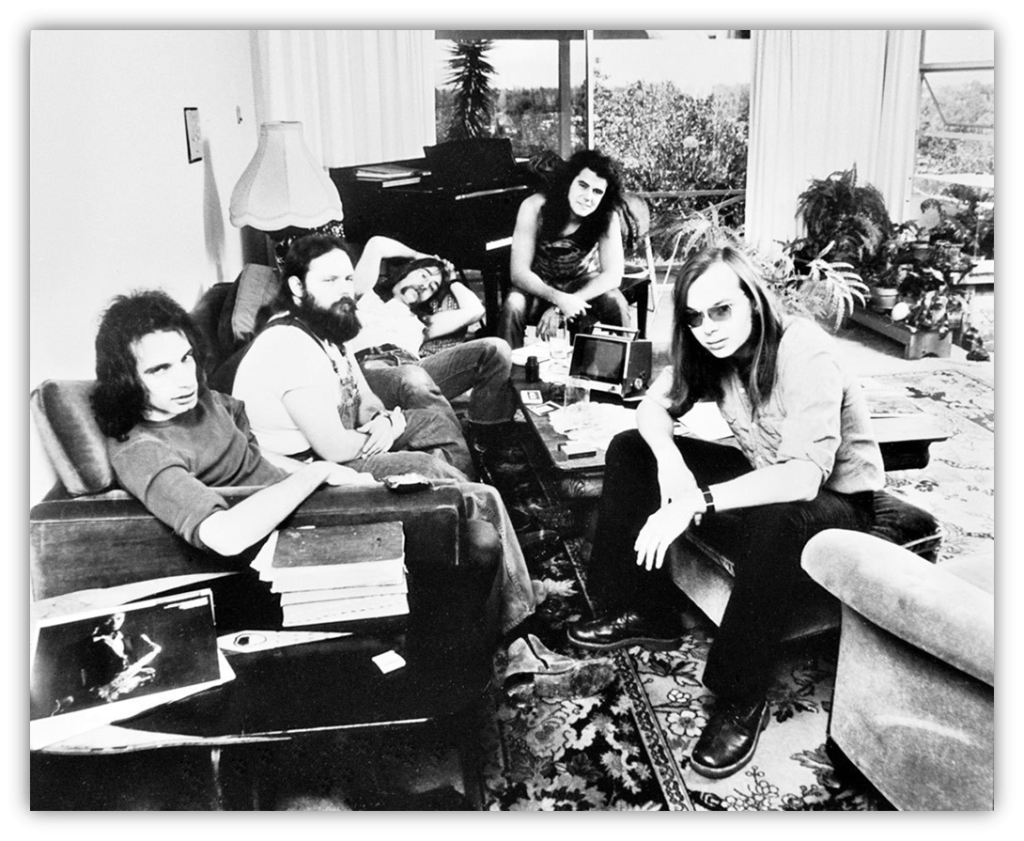
None of the session musicians playing on “Any Major Dude Will Tell You” had any idea what a “squonk” was, and they were too afraid of looking stupid to ask.
They should have asked. As a “major dude”, Donald would have told them that a “squonk” is a mythical creature from Pennsylvania, that cries constantly, to the extent that it has been known to dissolve itself!
So, yeah, Steely Dan fans are used to Steely Dan singing about “squonks”, not crushes. No obviously they’ve decided the song is about delivering marijuana through the mail.
Ultimately, in 1977, a newspaper would play William S Burroughs a Steely Dan record – “Aja” – to get his reaction. William, it turns out, was not a fan.

“These people are too fancy.” He said. “They’re too sophisticated, they’re doing too many things at once in a song. You take The Godfather, the horse’s head. That’s great. But you can’t have a horse’s head on every page. These people tend to have too many horses’ heads.”
“Rikki Don’t Lose My Number” isn’t as complicated as “Aja” though. “Rikki Don’t Lose My Number” possesses just the right amount of horses’ heads. “Rikki Don’t Lose My Number” is an 8.
Not to be mistaken for Phil Collins’ “(Billy) Don’t Lose My Number,” a song that has been in my head the entire time I’ve been writing this post.
Meanwhile, in Cult Band Land:

“September Gurls” by Big Star
Sometimes, it pays to fail.
Big Star are great and all. But I honestly don’t think they’d be so idolized – and certainly wouldn’t be considered any sort of elder-statesmen of indie rock – if not for the fact that their records kept flopping. If not for the record-store nerd cachet that they earnt by not selling any records, they wouldn’t be the primary influence for every power-pop band that also doesn’t sell any records. And also for R.E.M.

Big Star are so much the quintessential record-store nerd band that a small chain of second-hand record stores in Adelaide, South Australia, was named after them. They used the logo and everything. I’m not sure how they got away with it.
Big Star certainly weren’t aiming to be an influential underground band. You don’t call yourselves Big Star if you are aiming to be an influential underground band. You don’t call your debut album “#1 Record” if you are aiming to be an influential underground band. Big Star had good reason to believe that “#1 Record” might actually become a Number One record. After all, lead singer, Alex Chilton, had previously had a Number One record, back when he was lead singer of The Box Tops.
Big Star’s records didn’t keep flopping because they were no good. Or because they didn’t sound good on the radio. They were good, and, on those rare occasions they were played on the radio, they sounded good. No, Big Star’s records kept flopping because their record company was going out of business.
That record company, for some mystifying reason, was the soul-centric Stax Records. Home to Otis Redding, and Isaac Hayes, and Sam & Dave, and Booker T & The MGs, Stax Records was one of the most soulful record companies around. It was a weird fit for a jangly-guitar band like Big Star.

Now, technically, Big Star were signed to Ardent, a seemingly half-hearted attempt by Stax to break into the rock market.
Big Star seems to have signed with Ardent simply because they lived in Memphis and Alex had been using their studio a lot.
And Stax Records were going out of business, not because their records were suddenly bad, but due to CBS Records – who were responsible for distribution – not doing their job, and not distributing. CBS seemed more interested in securing shelf-space for Philly Soul stuff.

Although, to be fair, that stuff was flying off the shelves. They also seemed more interested in securing shelf-space in big chain record stores, whereas Stax had always done better with the Mom & Pop stores. Stores that looked like Adelaide’s Big Star Records.
1972’s “Thirteen” clearly should have been a big hit for Big Star. Sure, it’s a little quiet and restrained, but so were Neil Young, and Cat Stevens, and Carole King. It’s a quiet acoustic strumming thing by someone who says things about “Paint It Black.” What does Alex say to her father about “Paint It Black”? He never says. I want to know (“Thirteen” is a 10.)
But when your record company is struggling to stay afloat, even the best songs get lost in the mix. And, also, when your band is struggling to stay in one piece, whilst various members repeatedly destroy each other’s instruments, and master tapes going missing (presumedly under suspicious circumstances).

“September Gurls” doesn’t sound like a band at war with each other. It sounds warm and affectionate.
I guess that’s what happens when you are writing a love song, not just to one girl, but to three of them, all of them born in September! That’s three times the love!!! No wonder December boy’s got it bad!
“September Gurls” is a 9.

To hear these and other 60s hits, tune into DJ Professor Dan’s Twitch stream!
Let the author know that you liked their article with a “Green Thumb” Upvote!




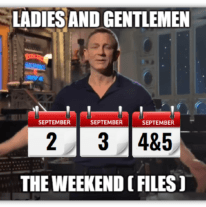

Editors note:
It’s not your imagination; you all were not suddenly catapulted via some weird space time continuum bend in the fabric, to 1994.
Yours truly had a production error and, simply put, ran the wrong article.
All is well, and profound apologies to DJPD for the late start, and the mixup. Enjoy 1974…
I always try to stick up for 1974, since its become so popular to pick on that year’s music (the same way I stick up for “We Built This City” when it is repeatedly labeled the worst pop song of all time.) To be sure, there was some bad music that year, but what year doesn’t have some bad music? (I stick with my pick of 2004 being my least favorite year for pop music).
I still say that “(You’re) Having My Baby” is a perfectly acceptable piece of 70s soft rock. An instrumental version would be fine. If the lyrics were about making breakfast or something else (You’re having my omelette…) it would be pretty likeable. I give Anka the benefit of the doubt for trying to make a sincere song about the excitement and beauty of anticipating childbirth, but it’s clumsy and was just born to lose.
I had never heard the Paperlace version of “Billy Don’t Be A Hero”. I see it went to #1 in a lot of countries, but only #96 in the US. Blame Bo Donaldson. It’s a…strange song to have topped the charts in any version.
I simply love “Ricky Don’t Lose That Number”. Skunks guitar solo in it is one of my favorites from any Steely Dan song. And with the flip side being the perfect “Any Major Dude”…it is a rare single with a 10/10 song on both sides.
I’ve seen all of the accolades over the years for Big Star, but I had to listen to “Thirteen” and “September Gurls” this morning. I definitely wouldn’t call it a “hit” of 1974, but you did categorize them under Cult Band, which they definitely are. I can see why people like them. That “September Gurls” song sounds exactly like power pop from decades later was trying to sound like.
If I were going to tip the scales in favor of summer of 1974 I would have included stone cold classics like MFSB’s “TSOP”, Gordon Lightfoot’s “Sundown”, Wings’ “Band on the Run”, and Maria Muldaur’s “Midnight at the Oasis”. 🙂
I agree. Did 1974 have some of the worst, if not the worst, pop music ever? Absolutely. Was 1974 the worst year in pop music ever? Absolutely not. There was some great stuff as well. If you average the 1’s and 2’s with the 9’s and 10’s, I submit that the score would be nowhere near the lowest of all time. For every “Spiders and Snakes” (ick) there was a “Tell Me Something Good” (and if you don’t like that one, I just don’t know what to say). I think I’m going to listen to “Me and Baby Brother” now.
“Tell Me Something Good” is exhibit A in the defense of funk.
I agree with ltc and Link, although I’d find it difficult to select a “worst” year in pop music as there’s almost always something I really enjoy from a particular year …
Keeping to Billboard’s Hot 100 in June (and realizing that’s not the same as an international look at the month — witness Paper Lace vs. Bo Donaldson and the Haywoods), here’s a half-dozen songs I’d argue for (other than ones DJPD already cited) as people’s exhibits in the case of 1974 being a decent year for pop:
1) Abba’s “Waterloo”: This may have already been a global hit, so it wouldn’t have made DJPD’s list. But it was storming up the American charts in June toward a No. 6 peak in August. Even if the group and the song hadn’t become the behemoths they would become, it would still rank among 1974’s “Wow!” moments.
2) Olivia Newton-John’s “If You Love Me (Let Me Know)”: The second of her collaborations with bass back-up Mike Sammes, this was the sound that earned ONJ the (later controversial) applause of the Country Music Association.
3) Anne Murray’s “You Won’t See Me”: Challenging Olivia for pop-AC-country warbler of the moment, Anne did a great job covering a Beatles tune and making it her own. (And her country-meets-R&B cover approach would prove even more successful a year later for Linda Ronstadt.)
4) Gladys Knight and the Pips’ “On and On”: Lest ballads like “Best Thing That Ever Happened to Me” typecast them, the family quartet knew how to balance them with stompers like this Curtis Mayfield (not William DeVaughn) production.
5) Ozark Mountain Daredevils’ “If You Wanna Get to Heaven”: Sure, I prefer 1975’s “Jackie Blue,” but this is as fun as 1974’s Southern boogie pop/rock got without the racist overtones of “Sweet Home Alabama.”
6) Blue Magic’s “Sideshow”: The Stylistics were in the Top 3 all month long with “You Make Me Feel Brand New,” while this equally polished soft soul classic eased its way up the chart toward a No. 8 peak in August.
I purposely avoided the double-barred “Rock”-titled disco progenitors since I figure we might see those coming in a July- or August-themed edition…
I love Anne Murray’s “You Won’t See Me”. I was near 20 years old before I realized it was a Beatles cover.
I think the dirty little secret is that there is no definitive worst year of music. It depends on who is doing the evaluating and as usual, it’s their personal opinion. Link, you remain the only person I’ve seen rise to the defense of Havin’ My Baby, and I’ve witnessed you do it twice now. I cannot join you in that fight, but as bad as that song is and some others that Dan mentioned, there are dozens of other great songs that came out that same year, as has been pointed out. It’s always more provocative to call out the bad apples, but that doesn’t make the whole bushel rotten.
The one thing I can say positive about the Anka song (which I would rate a 1) is that its use of Odia Coates as the voice of the woman in love with Anka’s lead was pretty transgressive for 1974 … and I felt she was put to much better use on “One Man Woman, One Woman Man” and, especially, “I Believe There’s Nothing Stronger Than Our Love.” Why she didn’t become a hit soloist is one of the ’70s great mysteries…
“I Shot the Sheriff” remains my least favorite #1 song of 1974. The song is lame to begin with, and Clapton’s version is obnoxious.
I hope folks don’t think I LOVE (Y)HMB, but I definitely don’t hate it…mainly because of the music. And maybe because I enjoy playing the contrarian on that one. 🙂
Funny, “a horse head on every page” is a pretty good way to describe the style of Naked Lunch.
Not that there’s anything wrong with that…
I would agree that Big Star’s obscurity and failure to hit the mainstream was likely one reason for the allure to all those 80s and 90s bands that loved them and were heavily influenced by them. But I disagree that they still wouldn’t have held the same influence had they been more widely known and that the only reason they failed is because their record company was going out of business. Their sound did not fit what was happening in pop or rock at the time. Their jangly pop, Beatles’ influenced sound was not in at that time. Its influences were in the too recent past. For a retro sound to come back, it tends to have to be a little older. Their harder rock songs were not acid rock enough for what was popular in that realm either. They were not going to hit the zeitgeist in the early to mid 70s. But give it a couple of decades and that sound was ripe for discovery, and that is exactly what happened. When I hear Big Star, I hear something that sounds nothing like what I know from growing up in that time, and I hear what music could have been. I absolutely love them, and I believe I would have loved them even if they hadn’t become the cult band they did, though I won’t deny that has some appeal.
Big Star would have fit right in with Poco and Pure Prairie League and others of that ilk who were radio mainstays in the 70s.
Adjacent, but not quite country enough, imo. And only some of their earlier songs fit that folky vein.
I hate to disagree but I will. “The Entertainer,” while not Joplin’s best, is an 8. However, I agree that “Thirteen” is a 10.
My misheard lyric correction for the day is that it’s not “Diggin’ the scene with the gasoline.” I’ve been wrong for fifty years.
Agreed. The Entertainer is the “Don’t Stop Believin'” of Joplin, far eclipsing any other of his songs in current popularity. Just last week my 14 year old nephew was visiting, and I heard him plunking out the melody line of The Entertainer on our piano. I even like Marvin Hamlisch’s arrangement that got popular from The Sting. But I agree that “Maple Leaf Rag” is even better.
‘Solace.’
I just listened to “Solace” for the first time. That was simply lovely. And I felt like Ken Burns should have been narrating something about the turn of the century military or something like that.
Yes! Another go-to piece for piano students in the 70s.
I learned to play The Entertainer on the piano when it was hot in the mid 70s. A few months ago, I was playing for a funeral and found out at the last minute that the deceased was a big Joplin fan. I needed to pull something out of my hat, by memory, on the spot, and by golly, I could still play The Entertainer, all these years later. Burned into my brain, baby.
That is amazing, rollerboogie.
When I was kid in ’74 and heard William DeVaughn sing about “a gansta lean, ” I had no idea what he was talking about. But it sure sounded cool.
(Probably an easy) Tangential trivia question: Five years after BTFWYG: what was another famous “lean” lyric?
Is “Brass in Pocket” by the Pretenders famous enough?
Link noticed, noticed…
“Lean On Me” by Bill Withers?
EDIT: Sorry, no, that came out two years before BTGWYG.
I’ve never heard (You’re) Having My Baby and you’re not going to persuade me to give it a whirl now.
Whereas I’ve heard The Streak more than enough. I believe it plays on a loop in the pits of hell.
Paper Lace are too dull to irk me. You’re write up is far more entertaining than they could ever be.
Steely Dan don’t do it for me. I know the reputation and they inspire devotion but I don’t get it.
Whereas William DeVaughn is sublime, The O’Jays are funking superb and Big Star are glorious – it’s almost like listening to Teenage Fanclub.
BTW, since Scott Joplin died in 1917, I’m gonna say there’s no way that’s him in that photo — looks to be off by several decades.
Correct, of course. That was an “interpretation.”
We strive for accuracy: I’ve replaced with a verified image.
Interesting screen name!
The inclusion of Billy Don’t Be a Hero (along with I’ve Never Been to Me, another “ick” song) in The Adventures of Priscilla, Queen of the Desert soundtrack always bothered me since the rest of the music is so great otherwise. At least they didn’t include it in the stage production. Wish they’d dropped I’ve Never Been to Me there too. By the way, since a sequel to the movie has been announced, I wonder what songs they’re going to include in that soundtrack?
As for William DeVaughn’s hit, he responded to an ad in Billboard for a shady music operation called Omega Sound wherein you had to pay them in order to get your song recorded. DeVaughn, a Jehovah’s Witness before and after Be Thankful for What You Got became a hit, paid $900 to the company, and Omega’s Vice President was so impressed with the result, he went out and sold it to Wes Farrell’s Roxbury imprint in Los Angeles after getting several rejections from other labels saying it was the worst song they’d ever heard.
But “I’ve Never Been to Me” had to be on the soundtrack, since its performance in Priscilla is the only thing that even partly redeems the song. As long as I can visualize a drag queen singing it, I can tolerate it.
Just going to leave this Banda version of Billy Don’t Be a Hero in Spanish right here.
https://www.youtube.com/watch?v=X1vEEVdifXk
“September Gurls” is a 12 – the Bangles version is a 9.
https://youtu.be/LJdc-18Yq-o
Steely Dan has some incredible songs – “Rikki Don’t Lose That Number” is not one of them.
“For The Love of Money” kicks ass – 9/10
Stupid teens of the 80s in Los Angeles, who should feel bad about themselves, but would come around, would often refer to the Elton song as “Don’t Let Your Son Go Down On Me” – maybe they just objected to his enormous Cocaine use…
Let me amend the Steely Dan comment: Every SD song has amazing components, because they hired the most incredible musicians to do their sections, but that does not mean that the song, as a whole, is incredible.